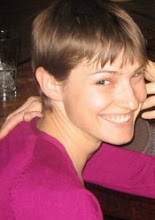In the interest of full disclosure, I should mention that I am not a connoisseur of memoirs. As a person who holds privacy dear, I contemplate with a kind of fascinated horror those who think their subjectivity is sufficiently important to put on display for all mankind and posterity. Of the billions of people on the planet, I wonder what makes one believe in his or her own absolute uniqueness. That personal quirk aside, I have to say that I really enjoyed reading Jonathan Franzen's The Discomfort Zone: A Personal History. Partially, I believe, because Franzen's relationship to his own experience is so detached and intellectualized. He, too, seems to wonder why he should put himself at center stage, and therefore constantly deflects attention from his own experience to highlight some other event, person, or object. This book of personal essays creates a space for disquisitions on the true character of Charles Schulz, on bird watching, and on the intersection of sensitivity training and Christianity in America in the 1970s.
Franzen's is the life of the urban elite. He has reached a level of recognizable success. He has a nice apartment in the Upper East Side; enough money to donate to favorite causes to assuage his liberal guilt; a conflicted and constant engagement with his mid-west, middle class roots; an ironic distance from the luxuries that money can buy. Now he processes the actions and accidents that brought him to this point.
Through his reflections, we discover him to be:
-a man coming to terms with his mother's death and the guilt he feels for only really understanding her separately from her smothering love in the last year of her life.
-a born-again bird watcher, having newly discovered the hobby to be one of the rare activities that can temporarily stymy his goal-oriented personality and shift his mental rhythms from the analytical to the appreciative.
-someone who was formed by and deeply appreciative of the undergraduate education he received in German literature.
-A late bloomer with occasional regressions to adolescent reactions to women.
-A sometimes resentful, sometimes grateful, product of the women's liberation movement.
But really, Franzen is beside the point, and that is what renders this group of essays so powerful. He is simply and admittedly a representative of the many intelligent and fortunate people of his generation who went out into the whacky world of late twentieth-century America and found a place in it.



